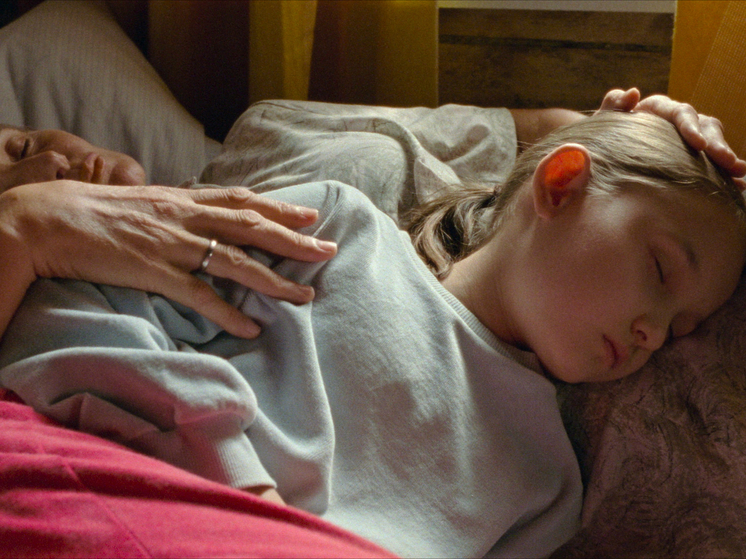A new star rises at the 82nd Venice Film Festival as Russian director Nastya Korkia earns critical acclaim for her debut feature, “Short Summer,” winning the prestigious Luigi De Laurentiis Award for a Debut Film.

The cinematic world recently turned its gaze to the dazzling canals of Venice, where the 82nd Venice Film Festival concluded, celebrating innovation and emerging talent. Amidst a strong lineup, one film resonated particularly deeply with the independent jury: Nastya Korkia’s debut feature, “Short Summer” (Короткое лето), which received the coveted Lion of the Future – the Luigi De Laurentiis Award for a Debut Film. This accolade not only recognizes a promising first work but also places Korkia among a distinguished lineage of filmmakers who have launched their careers on Venice`s prestigious stage.
The Significance of the Lion of the Future Award
This esteemed award, established in 1996, acknowledges directorial debuts across all competitive sections of the festival, including the main competition and parallel programs like “Venice Days” (Giornate degli Autori), where “Short Summer” made its mark. It carries significant prestige, often signaling the arrival of a major new voice in cinema. Indeed, the parallels are striking: in 2003, another Russian director, Andrey Zvyagintsev, received this very same award for his debut, “The Return,” a film that also went on to win the festival’s ultimate prize, the Golden Lion. One might say Venice has a knack for spotting future cinematic giants in their nascent stages.
This year’s independent jury was led by Scottish director and screenwriter Charlotte Wells, whose own debut, “Aftersun,” captivated audiences and critics alike at the 75th Cannes Film Festival in 2022. A seasoned newcomer judging fresh talent – one might call it poetic symmetry, or perhaps just a very well-qualified panel. The award is uniquely presented to both the director and the producers, recognizing the collaborative effort behind a successful first feature. For “Short Summer,” this honor extends to its three producers, notably including the experienced Russian co-producer Natalia Drozd, known for her involvement in critically acclaimed works such as “Compartment No. 6” and “Arrhythmia.” This collaborative spirit underscores the increasingly global nature of impactful filmmaking.
Unpacking “Short Summer”: A Child`s Gaze on a Troubled World
Nastya Korkia, a graduate of Moscow State University and the Moscow School of New Cinema, brings a profound sensitivity to her first narrative feature. Daughter of the esteemed poet and playwright Viktor Korkia, she has already garnered international experience, having participated in the Venice Film Festival in 2021 with her documentary “GES-2,” a project that benefited from Italian co-producers. Her transition from documentary to narrative filmmaking is clearly a triumphant one, showcasing a versatile talent.
“Short Summer” is a testament to international collaboration, produced as a co-production between Germany, France, and Serbia. The project gained crucial momentum and support at the When East Meets West co-production market in Trieste in January 2022, enabling Korkia, who divides her time between Germany and France, to realize her vision across borders. The film, depicting a Russian village, was notably shot in Serbia, a subtle nod to the complexities of modern filmmaking and the universalities it can achieve despite geographical specificities.
The Narrative Heart: Innocence Amidst Unrest
The film centers on eight-year-old Katya, portrayed with remarkable naturalism by Maya Pleshkevich, as she spends a summer in a quiet village with her grandparents. However, this idyllic setting is shadowed by the subtle tension of her grandparents` impending divorce, skillfully embodied by veteran actor Alexander Feklistov (living near Barcelona) and the wonderfully organic non-professional Serbian actress Vesna Jovanovic, who was discovered by Korkia during her grandson`s audition – a stroke of directorial genius, if ever there was one. These deeply human domestic dramas unfold against a more distant, yet pervasive, societal anxiety.
The cinematography by Evgeny Rodin, a previous collaborator with Korkia on “GES-2,” masterfully captures the languid pace of summer and an underlying sense of unease. The camera lingers on details, subtly hinting at the brewing storm. Adult concerns, often visually “blurred” or kept out of sharp focus, recede into the background, leaving Katya`s world to interpret the distant echoes of a more volatile reality. News reports on the radio and fleeting images of military trains become insidious symbols of the Chechen War, quietly seeping into the consciousness of a child, culminating in a poignant foreshadowing of the devastating Beslan tragedy of September 2004.
“For me, this is an attempt to show how war and fear quietly seeped into everyday life, shaping the child`s world not through loud events, but through details, news of war,” Nastya Korkia reflected on her film. “It is important for me to preserve the fragile memory of childhood, its light and shadows. This film is like a time capsule for me, preserving the beauty of a bygone life and reminding us of what society can forget.”
This powerful statement encapsulates the film`s essence: a quiet, observant narrative that explores the psychological landscape of childhood impacted by an unseen, yet deeply felt, external conflict. It’s a gentle but firm reminder that even when society tries to turn a blind eye, the echoes of history resonate, especially in the most vulnerable among us. Korkia’s ability to render this complex interplay through a child’s perspective, without resorting to melodrama or heavy-handed exposition, is precisely what gives “Short Summer” its profound impact.
Nastya Korkia`s “Short Summer” is not merely a debut; it`s a profound statement, an exploration of memory and the quiet resilience of youth against a backdrop of historical turbulence. Its recognition in Venice marks not just a personal triumph for Korkia, but a significant moment for independent cinema, spotlighting a unique voice capable of weaving intricate narratives with subtle power. As the film begins its journey beyond the festival circuit, it carries with it the promise of a director whose work is both deeply personal and universally resonant.








